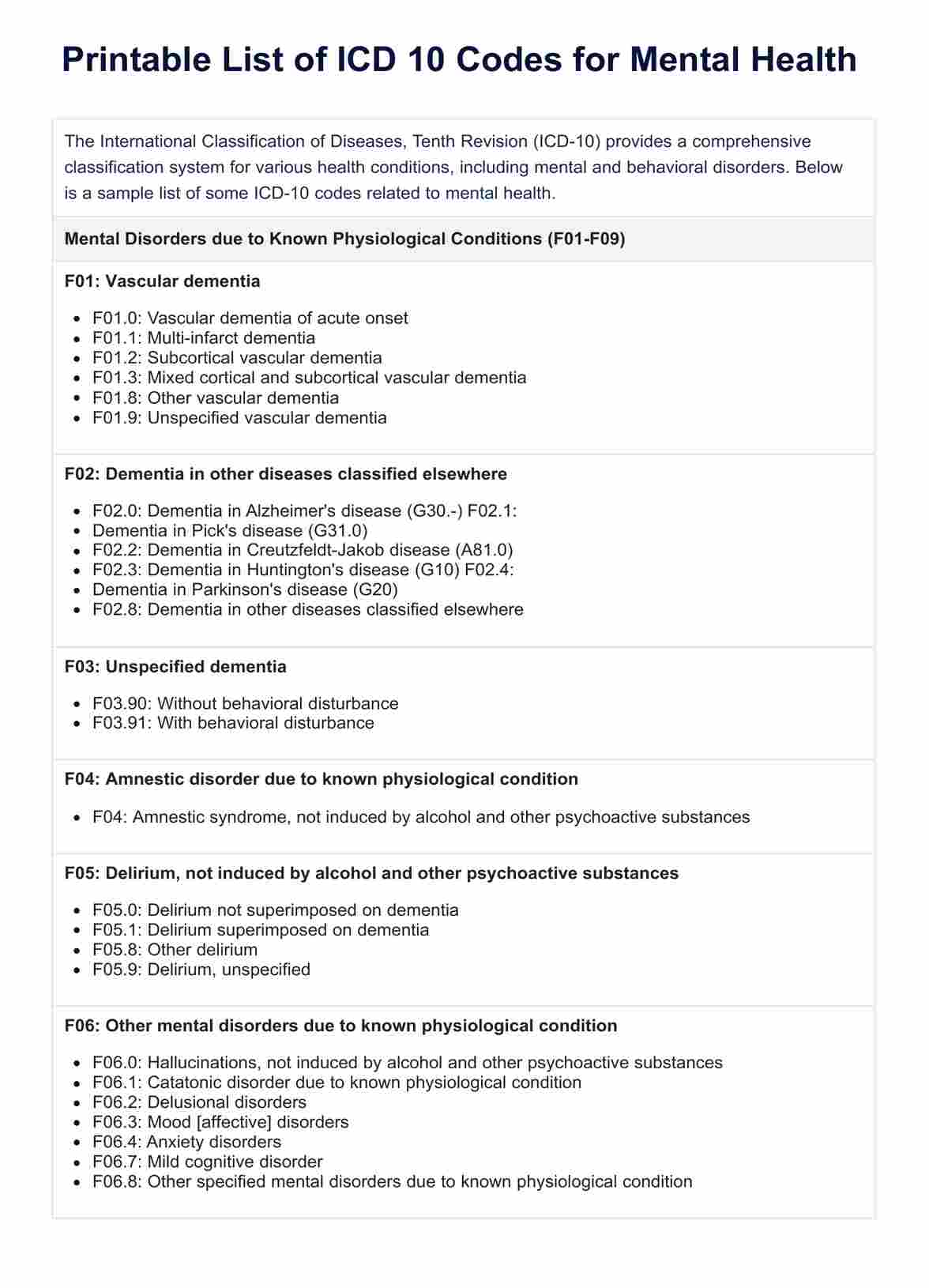While often used interchangeably, "mental disorder" typically refers to a diagnosable condition affecting mood, thinking, and behavior, whereas "mental illness" can be a broader term encompassing various mental health conditions.

Printable List of ICD 10 Codes for Mental Health
Download our free PDF for a practical guide on using ICD-10 codes in mental health diagnosis and billing. Streamline your practice today.
Use Template
Printable List of ICD 10 Codes for Mental Health Template
Commonly asked questions
ICD is used to classify and code all diagnoses of mental disorders, facilitating accurate diagnosis, treatment, and billing for mental health services.
ICD-10 is used globally to standardize the classification of diseases and health conditions, including mental health disorders, enabling consistent and precise diagnosis and treatment across healthcare systems.
EHR and practice management software
Get started for free
*No credit card required
Free
$0/usd
Unlimited clients
Telehealth
1GB of storage
Client portal text
Automated billing and online payments











